
Chapter 1
The Revolution Begins
Contemporary propriety trading firms have created a revolution. Retail traders across the world are presented with an unprecedented opportunity to gain access to capital and grow their wealth. It wasn't always like that.
Traditionally, proprietary trading referred to institutions (usually banks and other large financial institutions) trading securities and other leveraged financial instruments in their own accounts. Proprietary trading (or Prop Trading) was an exclusive institutional affair. Banks and large financial institutions would hire the most experienced traders to watch the market and open and close positions. These traders had to be physically close to trading floors, and have the necessary connections and credentials to make their way into these hallowed institutions.
However, today's technology-driven Prop Trading environment is a far more diverse playing field, with a much lower bar for entry.
Traditionally, proprietary trading referred to institutions (usually banks and other large financial institutions) trading securities and other leveraged financial instruments in their own accounts. Proprietary trading (or Prop Trading) was an exclusive institutional affair. Banks and large financial institutions would hire the most experienced traders to watch the market and open and close positions. These traders had to be physically close to trading floors, and have the necessary connections and credentials to make their way into these hallowed institutions.
However, today's technology-driven Prop Trading environment is a far more diverse playing field, with a much lower bar for entry.

Breaking Down the Characteristics of Prop Firms
The typical modern proprietary trading firm (or Prop Firm) is a boutique investment firm that works with beginner traders and provides them with the training and capital to buy and sell securities and derivatives using their own strategies. Unlike banks and large financial institutions that employ traders, the typical prop firm engages a trader and gives them capital and the freedom to make their own moves. The firms then agree to a sharing formula for the generated capital. In addition, most prop firms agree to absorb losses in case the market moves against the trader's strategies.
The Changing Landscape of Proprietary Trading
These firms have three defining characteristics. First, they are open to engaging with beginner traders. Legacy prop firms (i.e., banks and large financial institutions) almost exclusively favor traders with years of experience. They believed that this caliber of trader exclusively had the right mix of knowledge and expertise to grow capital in the global financial markets. This belief was not entirely false because access to crucial information was only possible through a deep connection to the industry. However, the internet's information ubiquity changed things; anyone with sufficient motivation and discipline can find their way into the global financial markets.

Second, contemporary prop firms provide remote access to retail traders. Remote proprietary trading refers to trading financial instruments with a prop firm's money from any location worldwide instead of the firm's trading floor. In fact, a typical prop firm does not have a physical trading floor.
Third, prop firms employ prop traders on a contract basis. The firm provides all the tools necessary for the contractor to generate substantial capital, including high-end software, research and insights, and unfettered access to the global financial market.
In short, conventional prop firms differ then the previous model in important ways. Primarily, they open up accessibility to markets and capital to a globally distributed cohort of retail traders. This democratization is a welcome advancement for traders lacking access to the physical trading floors and the weighty credentials required by the conventional model.
You have completed chapter 1 of 10. Please answer the question below to continue to the next chapter.
I prefer to continue without answering

Fill in the form below to start your trading journey off right with the prop firm that puts traders first.
